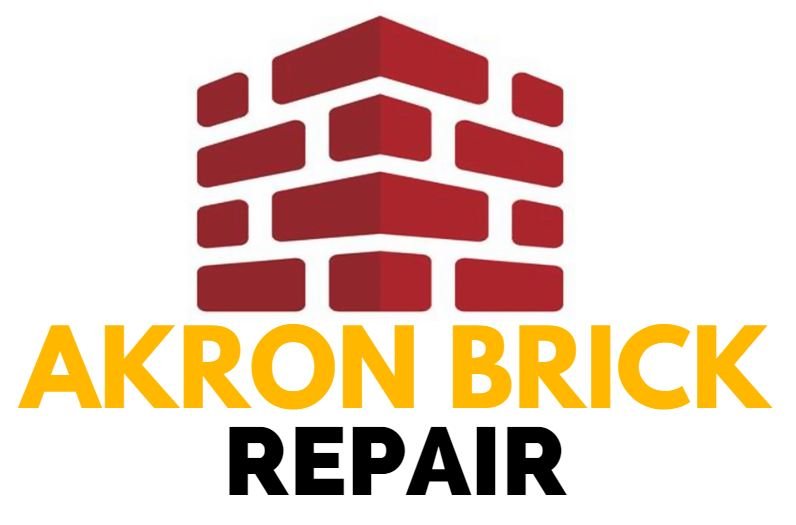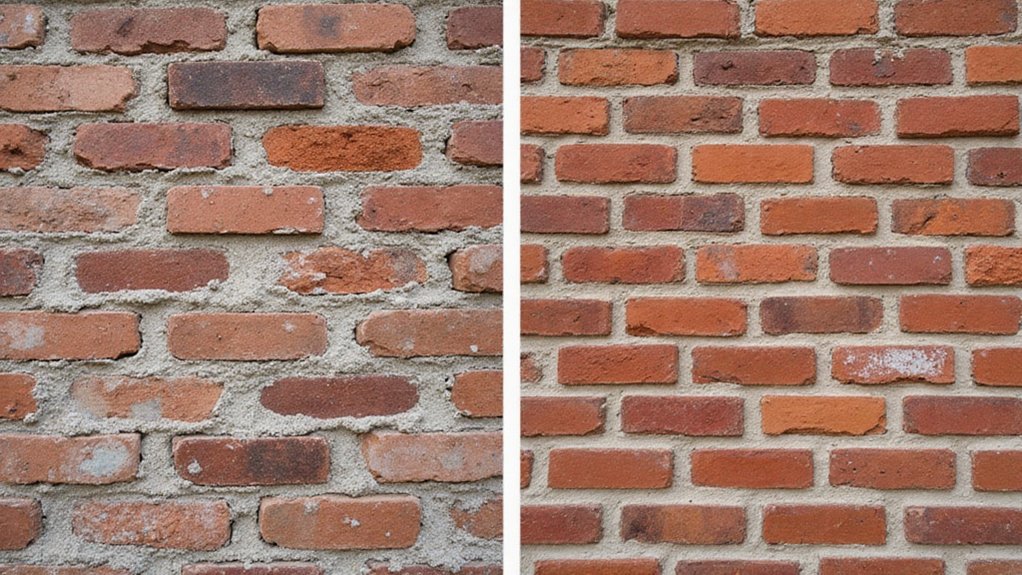When you notice cracks or crumbling mortar in your brick walls, you’ll want to understand your repair options. Brick damage isn’t just cosmetic—it can threaten your home’s structural integrity. Repointing and replacement might sound similar, but they’re distinctly different approaches to masonry repair. Each method addresses specific types of damage, and choosing the right one can save you time, money, and potential future headaches. Want to know which solution might be best for your wall’s unique challenges?
Understanding Brick Damage and Deterioration
Over time, bricks can experience various types of damage that compromise their structural integrity and aesthetic appeal. Your brick’s composition makes it vulnerable to weathering from environmental factors like moisture, temperature fluctuations, and chemical reactions. Tiny cracks can develop, allowing water to penetrate and cause further deterioration. Chemical cleaning techniques can help mitigate some of these surface-level damages by carefully removing contaminants without peeling the brick’s outer layer.
Wind, rain, and freeze-thaw cycles gradually break down the mortar and weaken the brick’s surface. Understanding these natural processes helps you identify early signs of damage and take proactive maintenance steps, preserving your structure’s strength and appearance before minor issues become costly repairs.
Repointing: Techniques and Process
Brick restoration’s heart lies in repointing, a scrupulous process that breathes new life into aging masonry. You’ll want to focus on achieving the right mortar consistency, which determines the success of your repair. Local Akron brick experts recommend using mineral-based repair mortars that precisely mimic the original material’s properties and color.
Professional masons carefully remove damaged mortar using specialized tools, ensuring they don’t harm surrounding bricks. They’ll then clean the joints thoroughly, preparing them for fresh mortar application. Applying new mortar requires precision and skill, with techniques that match the original masonry style.
Brick Replacement: When and Why It’s Necessary
Sometimes, even the most scrupulous repointing can’t save severely damaged bricks, and that’s where replacement becomes your best strategy. When structural integrity is compromised, you’ll need masonry reinforcement to protect your building’s facade renovation.
Cracked, crumbling, or water-damaged bricks can’t simply be patched; they require complete removal and substitution. You’ll want to address these issues promptly to prevent further deterioration and potential structural damage. Professional masons can help you identify which bricks need replacement and guarantee a seamless, strong repair that preserves your building’s aesthetic and structural integrity.
Cost Comparison: Repointing vs. Replacement
When comparing masonry repair costs, you’ll quickly find that repointing is typically much more affordable than full brick replacement. A cost analysis reveals that repointing can save you significant money, often costing 50-75% less than total wall reconstruction.
Your budget considerations should weigh the extent of damage, current wall condition, and long-term structural integrity. While replacement might seem necessary, professional assessment can help you determine the most cost-effective solution. Skilled masons can often restore your brickwork through strategic repointing, preserving both your wall’s appearance and your financial resources.
Signs Your Masonry Needs Professional Attention
Recognizing early warning signs of masonry damage can save you from costly repairs down the line. When you’re examining your brick walls, look for telltale indicators like crumbling mortar, horizontal cracks, or bulging sections. These masonry inspection requirements signal potential structural issues that shouldn’t be ignored.
During a thorough brick condition assessment, professionals will check for water damage, spalling bricks, and mortar deterioration. You’ll want to catch these problems early, as they can compromise your building’s integrity and lead to more expensive repairs. Don’t wait until minor issues become major headaches.
Long-Term Impact on Structural Integrity
The silent sentinel of your home’s foundation, masonry damage can gradually erode your building’s structural integrity if left unchecked. A thorough structural stability assessment reveals critical insights into potential weaknesses that might compromise your home’s safety and value.
Your masonry’s long-term health depends on:
- Preventing water infiltration
- Maintaining mortar composition evaluation
- Addressing hairline cracks promptly
- Preserving historical architectural elements
- Protecting against environmental degradation
Professional intervention guarantees your home remains sturdy, secure, and structurally sound. By addressing masonry issues early, you’ll safeguard your property’s foundation and maintain its aesthetic and functional integrity.
Choosing the Right Solution for Your Brick Walls
Because brick wall restoration isn’t a one-size-fits-all solution, homeowners must carefully evaluate their specific masonry needs before selecting the appropriate repair approach. You’ll want to weigh aesthetic considerations and DIY feasibility when deciding between repointing and replacement.
If your wall shows minor mortar deterioration, repointing might be your best choice, saving money and preserving original character. However, extensive damage or structural compromise could necessitate full brick replacement. Consider consulting a professional who can assess your wall’s condition and recommend the most cost-effective, long-lasting solution customized to your home’s unique requirements.
Frequently Asked Questions
Can I Repoint Bricks Myself or Do I Need Professional Help?
You can DIY brick repointing if you’ve got proper tools, but beware of risks like structural damage. For complex jobs, you’ll want a professional’s skill to guarantee your home’s integrity and security.
How Often Should Masonry Walls Be Inspected for Potential Damage?
You’ll want to have your masonry walls professionally inspected every 3-5 years. A qualified inspector’s recommendation can help you maintain your home’s structural integrity and catch potential issues early.
Will Repointing Increase My Home’s Market Value and Curb Appeal?
You’ll elevate your home’s market value and curb appeal through repointing, creating an improved appearance that attracts potential buyers and makes your property feel more inviting and well-maintained.
Do Different Types of Mortar Affect the Brick Repair Process?
Different mortar compositions impact your repair strategy. You’ll want to match the original mix to prevent differential expansion, ensuring your brick’s structural integrity and maintaining your home’s historic character.
How Long Does a Typical Brick Repointing or Replacement Project Take?
You’ll find the average project duration ranges from 2-5 days, depending on your home’s size and the crew’s efficiency. Typically, a team of 2-4 professionals can complete most brick repair jobs swiftly.

